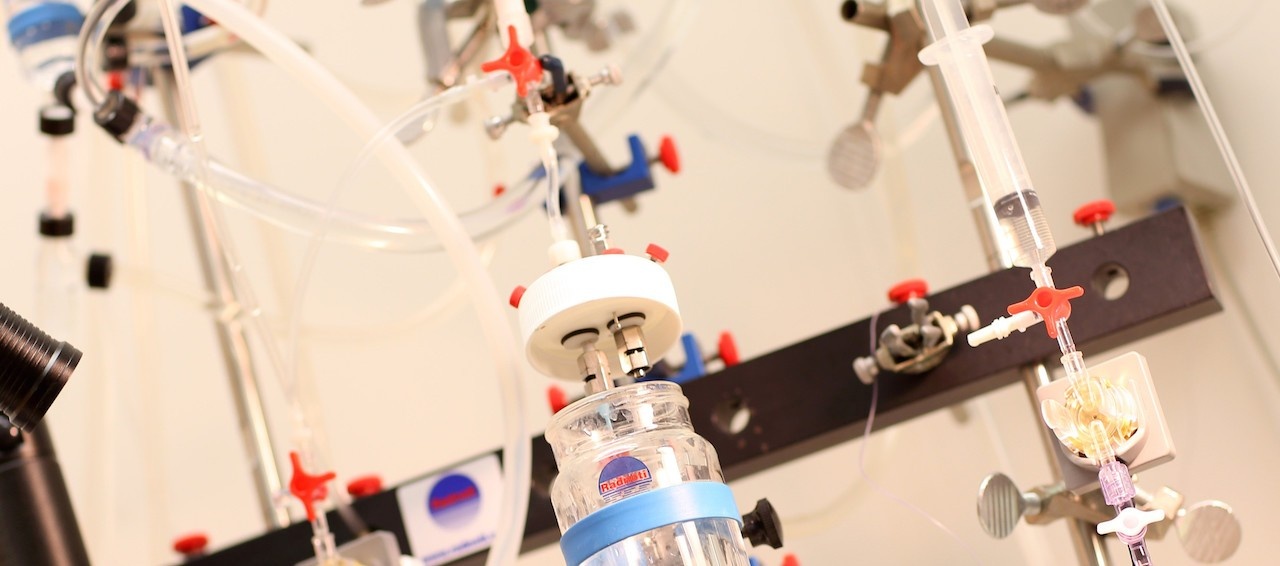Denis Dupré
Professor

Related information
Email: denis.dupre@dal.ca
Phone: 902-494-2550
Mailing Address:
- Pharmacology
- G protein coupled receptor
- Cancer
- Cardiovascular
- Signaling
- Trafficking
- Cannabinoids
Education
- BSc (Université de Sherbrooke)
- PhD (Université de Sherbrooke)
- PDF (Montreal Heart Institute/McGill University)
Research interests
We study how G protein coupled receptors, like cannabinoid or bitter taste receptors are involved in normal functions or disease states. Signaling from GPCRs is involved in many different physiological processes and therapies, and our goal is to understand the effect of different drugs, like cannabinoids present in Cannabis, on various signaling pathways. We try to understand how different ligands induce different responses, and how this will influence normal functions or disease progression. One of our goals is to identify new targets to help in cancer therapy including cancers that are resistant to chemotherapy.
Selected publications
- O'Leary LF, Tomko AM, Dupré DJ. Polarity scaffolds signaling in epithelial cell permeability. Inflamm Res. 2021 70(5), 525-538
- Tomko AM, Whynot EG, Ellis LD, Dupré DJ: Anti-Cancer Potential of Cannabinoids, Terpenes, and Flavonoids Present in Cannabis. Cancers (Basel). 2020 Jul 21;12(7):1985.
- Tomko A, O’Leary L, Trask H, Achenbach JC, Hall SR, Goralski KB, Ellis LD and Dupré DJ: Antitumor Activity of Abnormal Cannabidiol and Its Analog O-1602 in Taxol-Resistant Preclinical Models of Breast Cancer. Frontiers in Pharmacology, 2019 10:1124. doi: 10.3389/fphar.2019.01124
- Martin L, Nachtigal MW, Selman T, Nguyen E, Salsman J, Dellaire G, Dupré DJ: Bitter taste receptors are expressed in human epithelial ovarian and prostate cancer cells and noscapine stimulation impacts cell survival, Molecular and Cellular Biochemistry, 2019 Apr;454(1-2):203-214
- Young B, Nguyen E, Chedrawe M, Rainey JK, Dupré DJ: Differential Contribution of Transmembrane Domains IV, V, VI, and VII to Human Angiotensin II Type 1 Receptor Homomer Formation. Journal of Biological Chemistry 2017 Feb 24;292(8):3341-3350
- Young B, Purcell C, Kuang YQ, Charette N, Dupré DJ Superoxide Dismutase 1 Regulation of CXCR4-Mediated Signaling in Prostate Cancer Cells is Dependent on Cellular Oxidative State Cell Physiology and Biochemistry2015;37:2071-2084
- Chapman N*, Dupré DJ, Rainey JK. The apelin receptor: Physiology, pathology, cell signaling, and ligand modulation of a peptide-activated class A GPCR. Biochem Cell Biol. 2014 Aug 20:1-10
- Kuang YQ, Pang W, Zheng YT, Dupré DJ: NHERF1 regulates gp120-induced internalization and signaling by CCR5, and HIV-1 production. European Journal of Immunology, 2012 Feb;42(2):299-310
- Charette N, Holland P, Frazer J, Allen H, Dupré DJ: Dependence on Different Rab GTPases for the Trafficking of CXCR4 and CCR5 Homo or Heterodimers Between the Endoplasmic Reticulum and Plasma Membrane in Jurkat Cells. Cellular Signaling (2011) 23, 1738–1749
- Hammad MM, Kuang YQ, Yan R, Allen H, Dupré DJ. NA+/H+ exchanger regulatory factor-1 is involved in chemokine receptor homodimer CCR5 internalization and signal transduction, but does not affect CXCR4 homodimer or CXCR4-CCR5 heterodimer. J Biol Chem. 2010 Nov 5; 285(45):34653–34664.
Selected awards and honours
- CIHR New Investigator Award
- DMRF New Investigator Award
